
Description
Worry Beads Greek Komboloi
We present a unique string of worry beads Greek Komboloi in a rich golden brown.
Description
Golden brown round beads
Black thread
Black tassel
To be used as traditional worry beads (see below) or placed on a coffee table or wall hanging piece.
Complimentary gift wrap on all purchases.
The Komboloi
The Komboloi may be one of the most typical symbols of Greece. The history of the Komboloi and its origins date back to a time when monks in Mount Athos began making strands of beads by tying knots on a string at regular intervals in order to say their prayers to God. However, in modern times the Komboloi is not designed for religious or ceremonial purposes but rather for fun and relaxation.
Whether on a street, or in a busy cafe downtown, you will find people playing with worry beads in different ways, flips and tricks, thus letting go of their stress and worries as one bead moves deliberately towards the other. The pleasure of the action and the clicking noise of the beads turns the overall performance in an easy motion that is reported to help ease tension.
Meaning
The modern Greek word Komboloi derives from kombos (knot) and logio (collection) or the verb leo (say). It is said that it is short for the phrase “in every knot I say a prayer“. This etymology accounts for the fact that the Komboloi actually evolved from Komboskini, the Greek word for prayer rope.
Beads
Greek worry beads generally have an odd number of beads (often one more than a multiple of four, e.g. (4×4)+1, (5×4)+1, and so on, or a prime number, usually 17, 19 or 23) and usually have a head composed of a fixed bead (the so called “priest”), a shield to separate the two threads and help the beads flow freely, and a tassel (or founda in Greek). Usually the length of worry beads is approximately two palm widths.
3 Ways to use worry beads
The most common and quiet method is to start at one end of the thread or chain, near the shield, and to pull the thread forward using that hand’s thumb and the side of the index finger until one of the beads is reached. Then the cord is tipped so that the bead falls and hits the shield. This is repeated until all the beads have been tipped and then the user starts over.
The second and louder method is to divide the beads into two groups. On one end is the shield and a small number of the beads. On the other end are the rest of the beads. Where the two threads are empty, that space is laid between the index and middle fingers. The hand should be in a position where the palm is facing the torso. Then the end behind the hand is swung up and forward so that it hits the other beads, making a noise. The threads are then switched back into the space between the index and middle fingers by holding the threads between the thumb and the side of the index finger.
Another method is to hold all of the worry beads in one hand and roll them against each other, creating soft clicking sounds.
The Komboloi is still widely used in Greece and has also become a fashion accessory. The fact that the Komboloi keeps your hands occupied, has been promoted as an excellent way to quit smoking or to alleviate stress.
If you are looking for a Greek gift, worry beads make a unique gift or talking point for a coffee table or housewarming gift.
Be the first to review “Worry Beads Greek Komboloi” Cancel reply

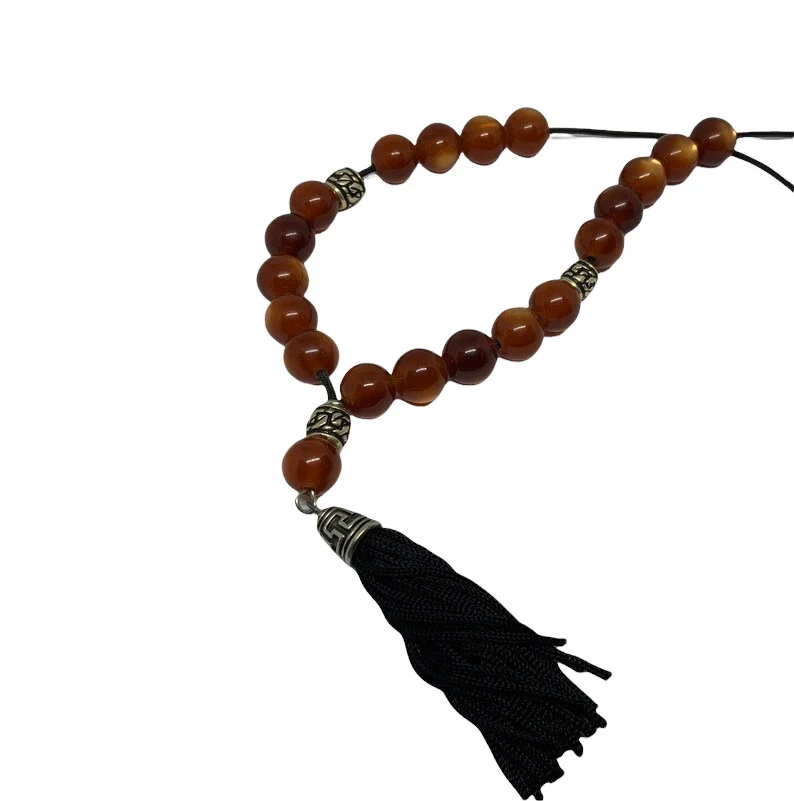
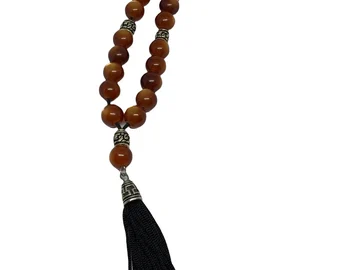

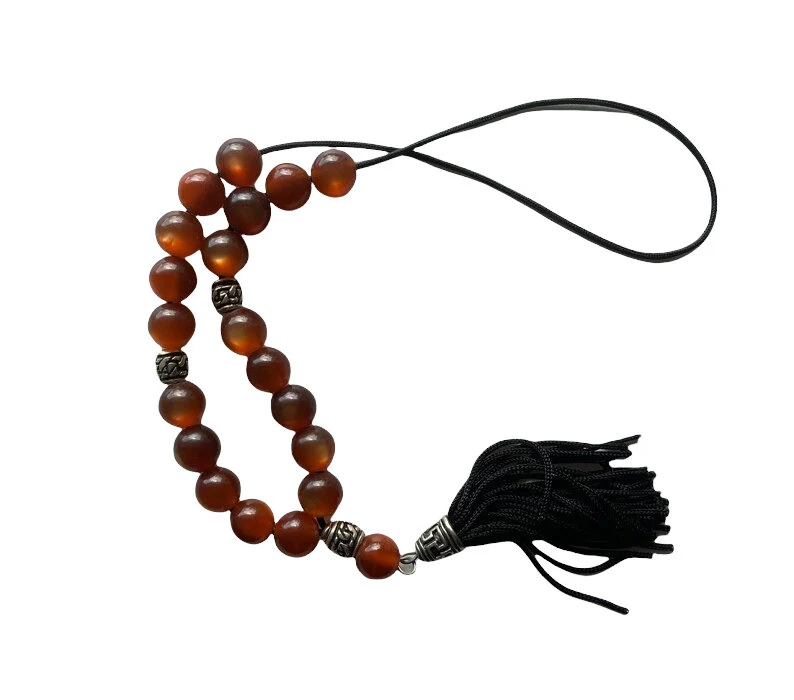
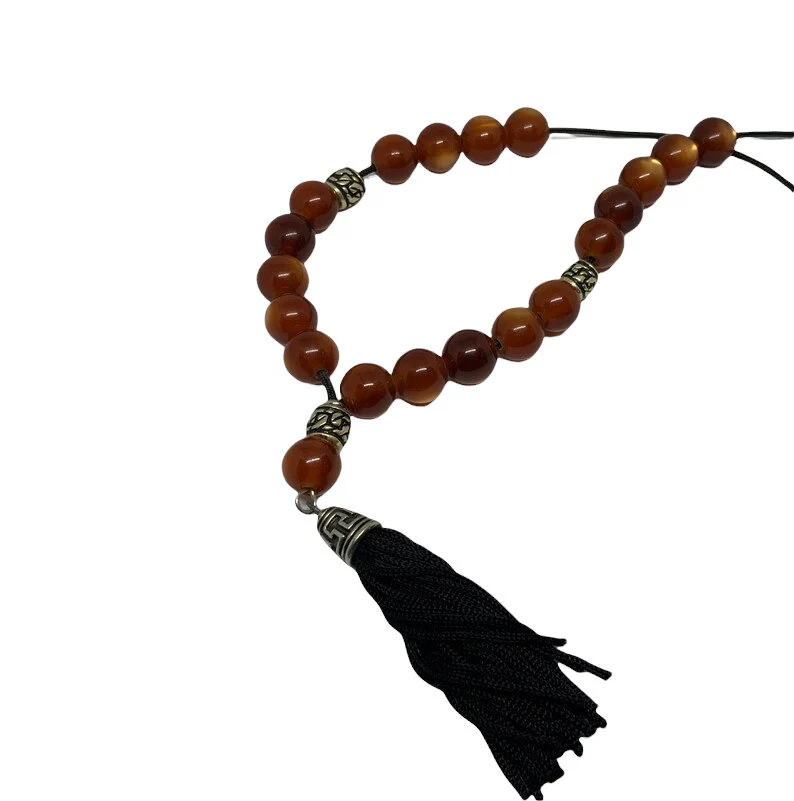
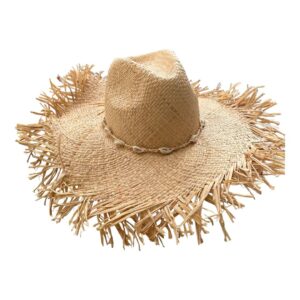
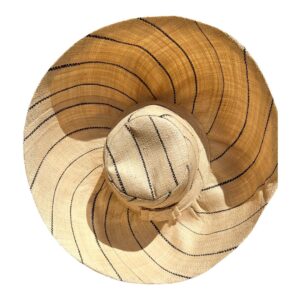
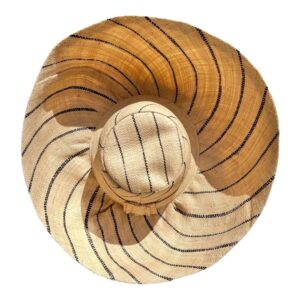
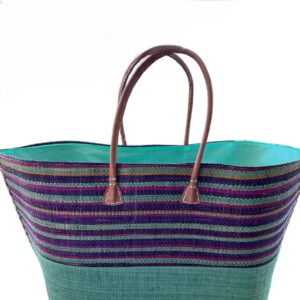
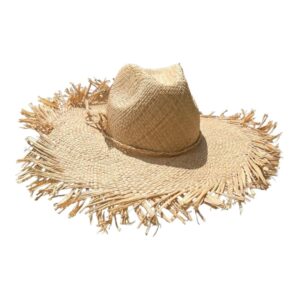
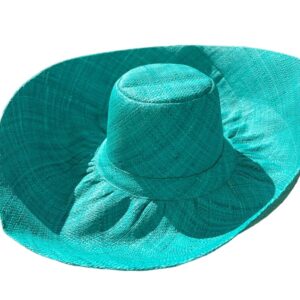
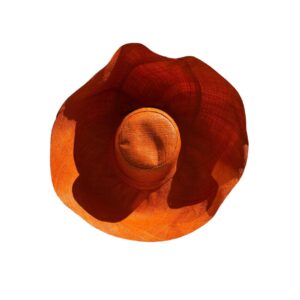

Reviews
There are no reviews yet.